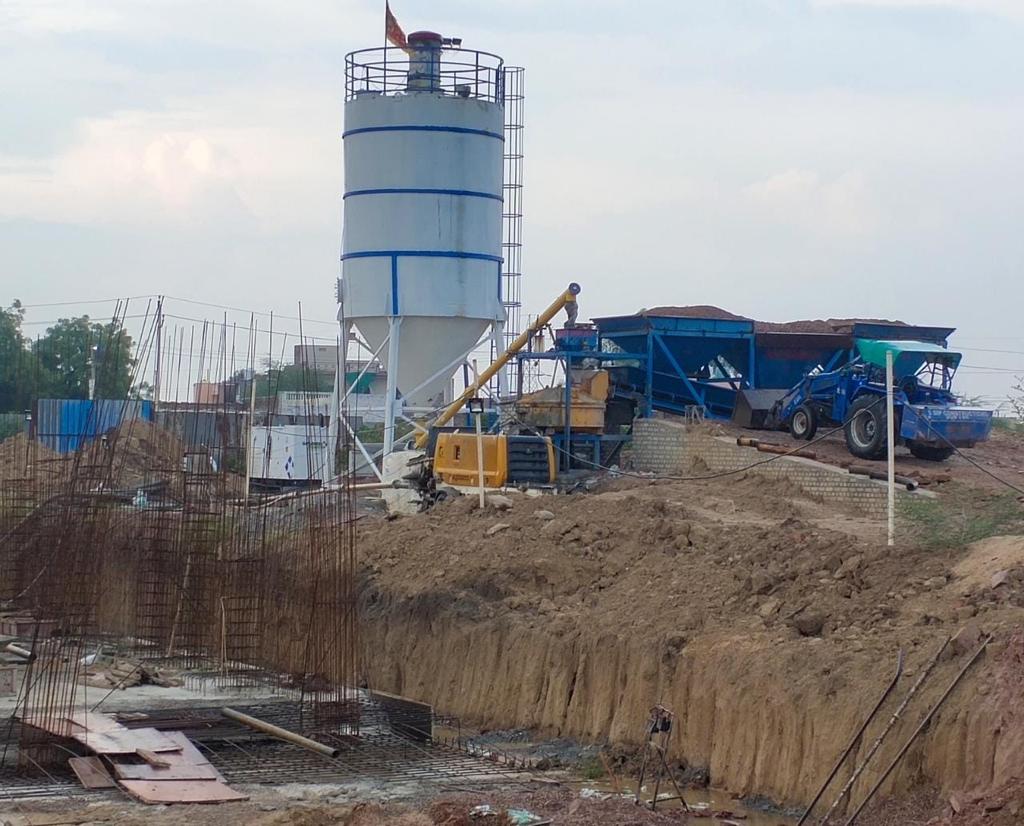Get In Touch
Get In Touch




A self-supported silo is a stand-alone, freestanding storage structure designed to store a variety of materials, including grains, bulk solids, and industrial commodities. Its distinctive feature is its self-supporting design, which means it doesn't rely on external supports or additional infrastructure for stability. These silos are typically constructed from durable materials like steel or concrete, offering excellent structural integrity and weather resistance. Self-supported silos are modular and customizable, allowing for easy expansion and adaptation to changing storage requirements. Their versatility, combined with their self-reliant construction, makes them a practical solution for industries that demand efficient and dependable material storage.
1. Material Construction: Typically constructed from high-strength steel or reinforced concrete to ensure structural integrity and durability.
2. Capacity: Available in a wide range of storage capacities, from small to very large, depending on the application and material requirements.
3. Shape: Self-supported silos come in various shapes, such as cylindrical, conical, or rectangular, to suit different storage needs.
4. Roof and Flooring: The design may include various types of roofs and flooring materials, such as conical, domed, or flat roofs, and concrete, steel, or epoxy-coated flooring.
5. Access Points: Equipped with access doors, hatches, and manholes for easy entry and inspection. 6. Ventilation: Provides ventilation systems to control temperature, humidity, and air quality within the silo.
7. Ladders and Platforms: Includes safety ladders, catwalks, and platforms for safe access to the top and inspection of the silo.
8. Safety Features: May incorporate handrails, guardrails, and fall protection systems to ensure worker safety during maintenance and inspections.
9. Foundation: Typically requires a stable and level foundation, such as a concrete pad or piers, to ensure the silo's stability and structural integrity.
10. Weatherproofing: Utilizes seals and gaskets to maintain an airtight and weatherproof environment inside the silo, protecting the stored materials.
11. Compliance: Designed and constructed in accordance with relevant industry standards and regulations, particularly those related to structural integrity and safety.
12. Expansion Options: Some self-supported silos are designed with expansion capabilities, allowing for easy addition of more storage capacity when needed.
13. Maintenance: Regular maintenance is essential to check for wear, corrosion, and to ensure the structural integrity of the silo.
1. Agriculture: Self-supported silos are frequently used for storing grains, seeds, and animal feed, aiding farmers in efficient harvest management and livestock feeding.
2. Food Processing: These silos store ingredients like flour, sugar, salt, and other bulk food materials, ensuring a steady supply for production in the food industry.
3. Chemical Manufacturing: Self-supported silos are used to store chemicals, powders, and raw materials, contributing to controlled production processes and safety.
4. Mining and Minerals: These silos are employed for the storage of minerals, ores, and aggregates, aiding in efficient material handling and stockpile management.
5. Cement and Construction: In construction, self-supported silos store cement, aggregates, and other construction materials, helping maintain consistent quality in construction projects.
6. Energy Generation: These silos are used for the storage of materials like coal, biomass, and ash in power plants, ensuring efficient energy generation.
7. Waste Management: Self-supported silos store and manage materials in waste management facilities, such as recyclables, compost, and hazardous waste.
8. Water Treatment: Used to store chemicals and materials required for water treatment processes, ensuring a steady supply for purification and filtration.
9. Industrial Manufacturing: Various industries employ self-supported silos to store materials used in manufacturing processes, such as automotive, aerospace, and electronics manufacturing.
10. Mining and Quarrying: Self-supported silos are used to store mined materials like limestone, sand, and gravel in mining and quarrying operations.
11. Plastics and Petrochemicals: These silos are used to store plastic granules and raw materials, ensuring efficient production in the plastics industry.
12. Environmental Monitoring: They are used in environmental monitoring stations to store collected samples, such as air particulates or water pollutants.
13. Wood Processing: Self-supported silos store wood chips, sawdust, and other wood-related materials in the wood processing and pulp and paper industries.
14. Bulk Material Handling: Industries dealing with bulk materials, such as coal, sand, or aggregates, use self-supported silos for efficient and weather-resistant storage.


